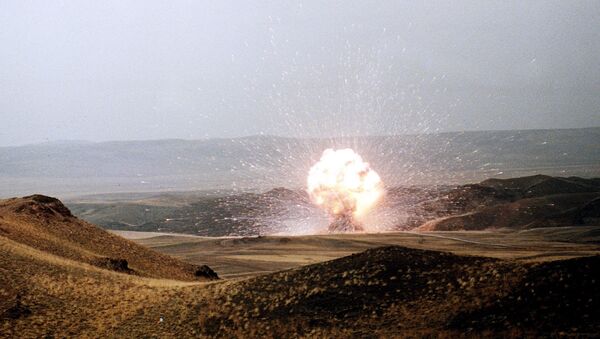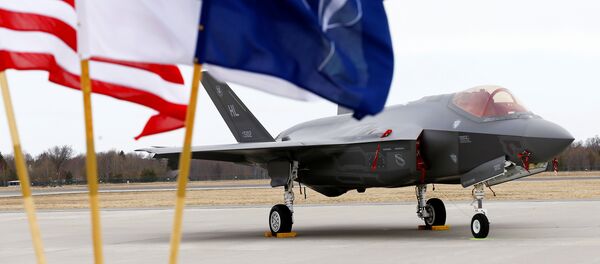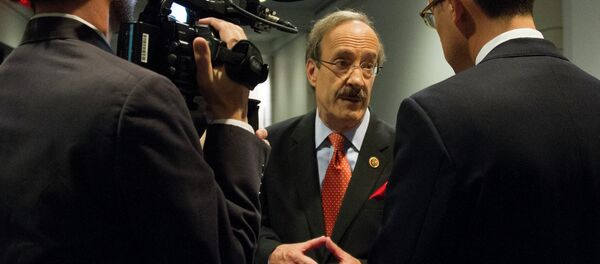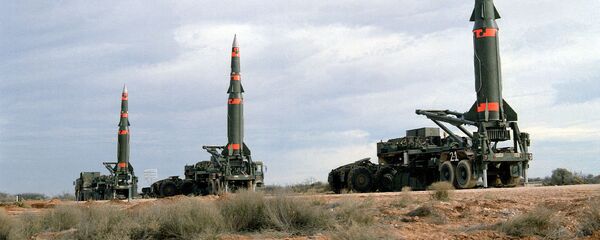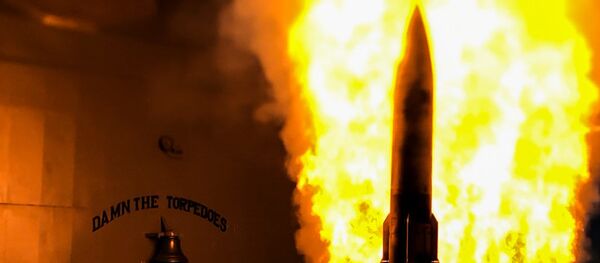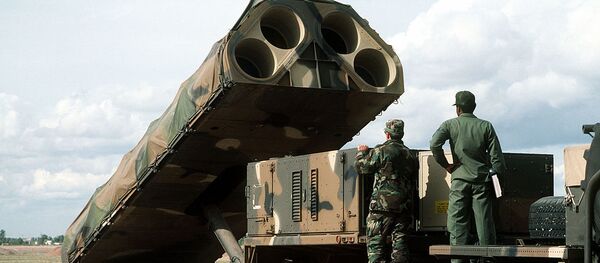The 1987 Intermediate-Range Nuclear Forces Treaty (INF), which prohibited the deployment of ground-based nuclear weapons with a range of 500 to 5,500 km, was terminated starting 2 August at the initiative of the United States, the Russian Foreign Ministry said in a statement on Friday.
"On 2 August 2019 the Treaty between the Union of Soviet Socialist Republics and the United States of America on the elimination of medium- and short-range missiles, signed in Washington on 8 December 1987, was terminated at the initiative of the American side", the statement says.
Pompeo Accuses Russia of Being Responsible for the INF Collapse
US Secretary of State Mike Pompeo has confirmed the US withdrawal from the INF treaty and claimed that Russia "bears sole responsibility" for the collapse of the 1987 accord.
Reuters earlier cited several unnamed senior officials in the Trump administration as saying that the initial test of planned conventional US intermediate-range missile will be conducted in the coming months.
The sources later clamed that Moscow had deployed "multiple battalions" of a Russian cruise missile throughout the country in violation of the pact, including in western Russia, "with the ability to strike critical European targets".
Russian Deputy Foreign Minister Sergei Ryabkov earlier called on the United States to implement a moratorium on deploying intermediate-range nuclear missiles, now that the deal is dead.
"We have suggested to the US and other NATO members to consider announcing a moratorium on the deployment of intermediate-range missiles. This moratorium would be comparable to one already announced by Vladimir Putin, saying that if the United States does not deploy this equipment in certain regions, then Russia will also refrain from doing so", he added.
Last month, Russian President Vladimir Putin signed a decree suspending Moscow's participation in the accord in a mirror response to Washington's move.
Washington Moves to Withdraw Unilaterally - Moscow Hits Back
In October 2018, US President Donald Trump announced his intention to tear up the treaty, having accused Russia of violating the accord and said that the US would start developing weapons banned under the agreement.
At the time, Putin warned that the repercussions of the US decision were unpredictable and could result in a global disaster due to an increasing trend of lowering the threshold for the use of nuclear weapons.
The US administration then stated last December that it would suspend its adherence to the accord unless Russia returned to fully "complying" with the treaty within 60 days.
Two months later, Washington announced its withdrawal from the pact in February, accusing Moscow of developing the 9M729 missile that allegedly violates the terms of the international agreement.
Russia has repeatedly denied the allegations that the missile violates the accord, pointing out that the American missile defence systems deployed in Europe can be repurposed for offensive capabilities and therefore are themselves in violation of the treaty.
In a symmetric response, Putin announced that Moscow was also suspending the pact and instructed his ministers to refrain from initiating talks with Washington on the matter and emphasised that the US needed to show readiness for an equal and constructive dialogue.
US Calls for New Treaty
Trump, who has developed a reputation for scrapping deals and alliances, has repeatedly said he wanted to negotiate a new treaty to replace the old one, even with a greater number of participants, such as China.
"Russia would like to do something on a nuclear treaty and that’s OK with me. They would like to do something and so would I", Trump told reporters Thursday.
The Russian president is not by far the only person to believe that the treaty's collapse would lower the threshold for the use of nuclear weapons: UN Secretary General Antonio Guterres condemned the escalation, urging both parties to refrain from dangerous moves.
"When [the treaty] expires tomorrow, the world will lose an invaluable brake on nuclear war. This will likely heighten, not reduce, the threat posed by ballistic missiles. Regardless of what transpires, the parties should avoid destabilizing developments and urgently seek agreement on a new common path for international arms control".
The deal, signed in 1987 by US President Ronald Reagan and Soviet Union General Secretary Mikhail Gorbachev, marked the first time the two superpowers — the Soviet Union and the US — voluntarily agreed to reduce their nuclear arsenals, destroying all nuclear-armed ground-launched ballistic and cruise missiles with ranges between 500 and 5,500 kilometers (about 300 to 3,400 miles), as well as allowing on-site inspections for verification.

